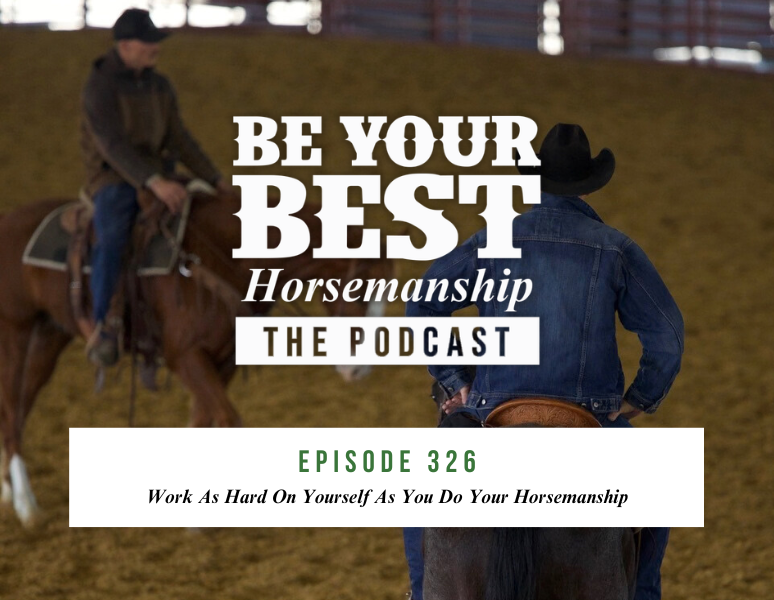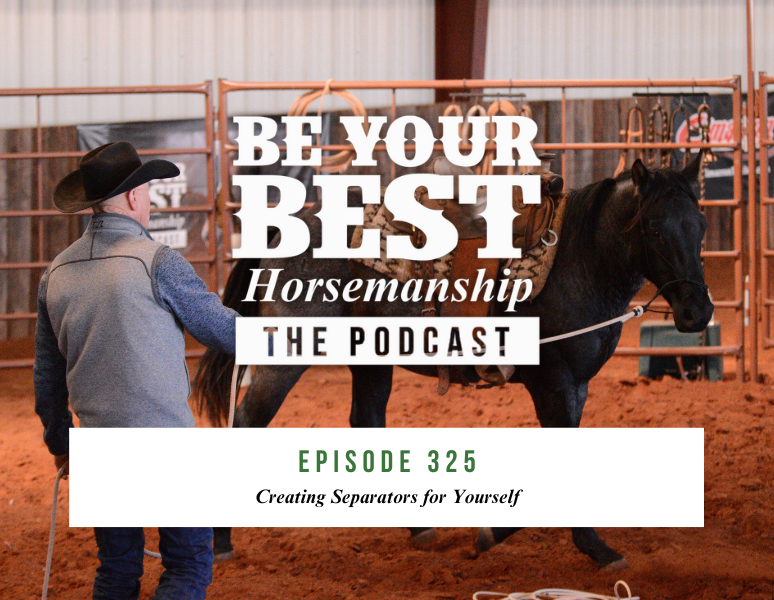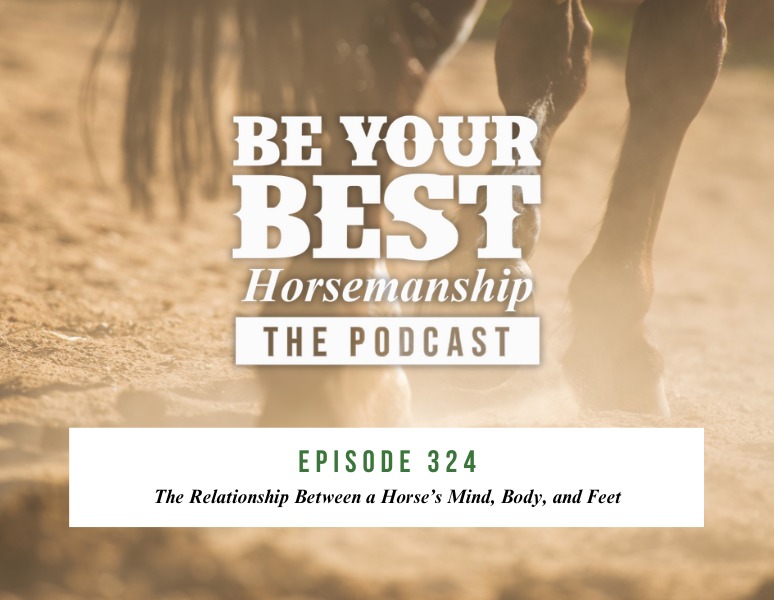Ep 211: Taking Responsibility for Your Success
In this episode, I'm sharing some insights from our recent mentorship week about the power of controlling your self-image, developing habits of discipline, and taking responsibility for your success.
The road to success
Sometimes, the road to success isn’t as short or simple as we would like it to be. In fact, I would argue that it rarely is. It’s like a kid on a family road trip repeatedly asking his or her dad “are we there yet?” After a while, that question tends to get a bit annoying–but why is that?
Truthfully, none of us know exactly when we are going to get to our destination. We just have to get a roadmap, set our direction, and do the best we can to get there in a timely manner. The same is true with horse training. We can have goals, but at the end of the day, the roadmap and the discipline that it is going to take to get there is really all we have control over. We can’t control the roadblocks that are going to pop up along the way. We just have to stay the course, maybe take a few detours, and keep our eye on the destination.
The value of being able to switch horses
This was the first mentorship week we had where every participant rode our horses throughout the week. This was an exciting opportunity for us to really see the value of being able to switch horses and ride multiple different horses in a short period of time. I always say that you can’t carry your success from one horse to the other, but when you ride multiple horses each day, this concept becomes easier and easier to understand.
Another way of phrasing this is: “What you did yesterday on another horse doesn’t matter to the horse you’re on today.” Regardless of how solid your program is, each horse is going to respond a little bit differently or catch on at a different pace. You have to apply the same system to each horse, but you also have to look at each horse individually and adjust your communication to fit the animal you are training right now.
No horse is “finished”
One thing I always say is that no horse is ever truly “finished.” Some might think this is a controversial statement, but it is what I believe. When I say “I don’t have a finished horse on my place,” what I mean is, “I don’t have a single horse on my place that can’t continue to get better.”
When we approach training with the mentality that our job is never truly finished, the roadmap to our destination becomes much more important than the destination itself. It’s all about the system. Focus on the system first, and the results will come.
Work as hard on yourself as you do your job
“Learn to work harder on yourself than you do on your job. If you work hard on your job you can make a living, but if you work hard on yourself you'll make a fortune.” ― Jim Rohn
I love this quote by Jim Rohn because it is a perfect illustration of the importance of personal development in the horsemanship journey. During our mentorship weeks, our program is split into three main phases: Horsemanship & Training, Business & Marketing, and Personal Development. The Personal Development piece is arguably the most important component of this entire experience.
Each time a group shows up to our place for a mentorship week, I always go into the week with the mindset that this week could be life-changing for everyone here. I don’t say this to be arrogant or to sound like what I have to offer will completely change someone’s life; however, my definition of “life-changing” is “something that will make a positive change in the way you do things.” And to me, mastering the concept of personal development is one of the most life-changing experiences a person can have.
Controlling your self-image
In the horse training business, your success as a trainer is highly dependent on your own self-image. What you think and believe of yourself is what is going to determine your success. Your self image and your conscious mind are always connected. Because of this, you will never outperform your self image. That is why it is so crucial to master the concept of controlling your self-image.
You can’t control the first thought that comes into your mind, but you can control the second. A big part of developing your self image is learning how to put that second thought in place. The first thought is usually a self-limiting thought, so we have to replace and overcome that thought with a positive, self-affirming thought. It takes practice, but personal development is a skill. Therefore, it can be taught, and it can be mastered.
The difference between motivation and discipline
Motivation is worthless without discipline. You can be motivated to reach a goal, but if you don’t have the discipline to implement the system on a daily basis, that positive effects of that motivation won’t last long. Without discipline, motivation is just false hope. We all want to do great things, but if we aren’t disciplined enough to implement the actions that are going to propel us toward those things, we are going to have a hard time getting there. Motivation is what gives us the idea to set big goals. Discipline is what helps us carry out those big goals.
Relying purely on motivation to get through your day is a lost cause. No one is ever going to feel motivated 100% of the time. For the days you don’t feel motivated, you have to have discipline to fall back on. Once you get in the routine of being disciplined, that discipline will generate motivation. Discipline is what allows us to create a habit of being motivated. And when we live in this state of mind, our roadmap to success becomes all the more manageable.
“Be Your Best Horsemanship” is brought to you by Silver Lining Herbs, Classic Equine, Martin Saddlery, Better Horses Network, Purina, Healthycoat, CINCH, Starbar, and Clarifly. These brands have been part of the Phil Haugen Horsemanship team for many years, and their products continue to play an integral role in the success of our performance horse training program. To support these brands, visit our Sponsors tab.




